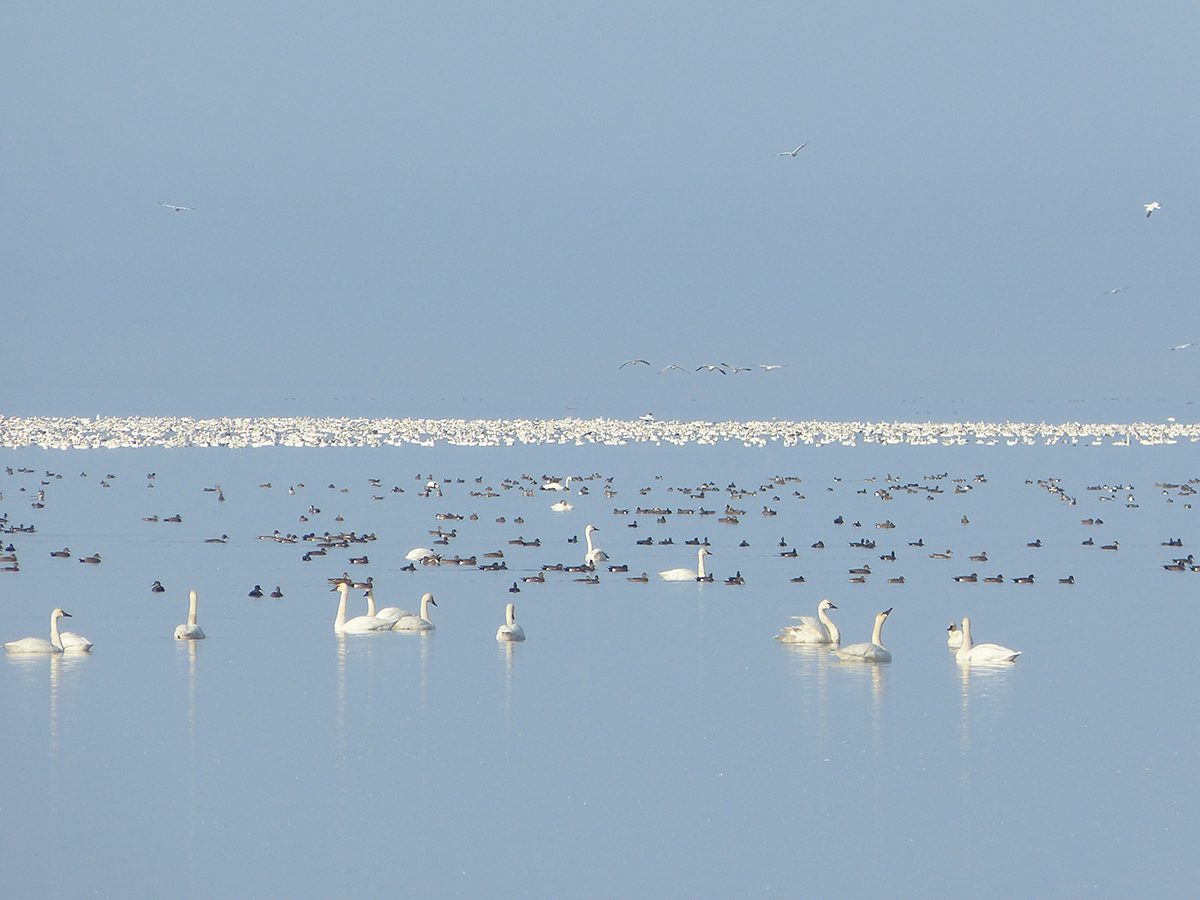
CHAPEL HILL — Wildlife advocates, citing the threat to migratory birds, have filed a challenge in federal court to block the U.S. Fish and Wildlife Service from allowing an experimental algaecide treatment of Lake Mattamuskeet.
The Southern Environmental Law Center, on behalf of Defenders of Wildlife and the Sierra Club, filed the lawsuit Monday in the Eastern District of North Carolina. The groups seek to block the plan in Mattamuskeet National Wildlife Refuge until the Fish and Wildlife Service performs a more thorough analysis that “takes a hard look at the toxic algaecide’s harms and the available alternatives.”
Supporter Spotlight
The groups point to the product’s former Environmental Protection Agency labeling showing it as toxic to birds. They note that shallow Lake Mattamuskeet is important habitat for more than 250 bird species including swans, ducks and geese.
Related: State issues certificate for Lake Mattamuskeet treatment
“A bird sanctuary is no place to experiment with a chemical that is toxic to birds,” said Southern Environmental Law Center Senior Attorney Ramona McGee, who is leader of the law center’s Wildlife Program. “We’re asking the Fish and Wildlife Service to put the mission and purpose of this wildlife refuge first, and not turn wild birds into lab rats when there are much better ways available to maintain the health of the lake.”
The North Carolina Department of Environmental Quality said Thursday its Division of Water Resources had approved a certificate of coverage to allow BlueGreen Water Technologies to begin the pilot study to treat for cyanobacteria in select parts of the freshwater lake June 1.
Fish and Wildlife is collaborating on the proposed treatment with the University of North Carolina Chapel Hill’s Institute of Marine Sciences.
Supporter Spotlight
Officials say the pelleted product is safe after it’s dissolved in water. Advocates disagree.
Related: USFWS plans to chemically treat part of Lake Mattamuskeet
“It might seem reasonable to assume that the federal government would refrain from using a national bird sanctuary to test a private company’s experimental algaecide, particularly one that reads ‘toxic to birds’ on the label, and yet here we are,” said Erin Carey, acting director, N.C. Chapter of Sierra Club. “The North Carolina Sierra Club is proud to stand between the delicate and irreplaceable beauty of Lake Mattamuskeet and the casual disregard of corporate interest.”
“The Fish and Wildlife Service should do everything in its power to conserve this important bird sanctuary,” said Jane Davenport, senior attorney at Defenders of Wildlife. “Instead, FWS is giving the green light for a private company to turn a wild sanctuary into a laboratory for experimental, unproven treatments with known dangers to the very wildlife the refuge is intended to protect.”







